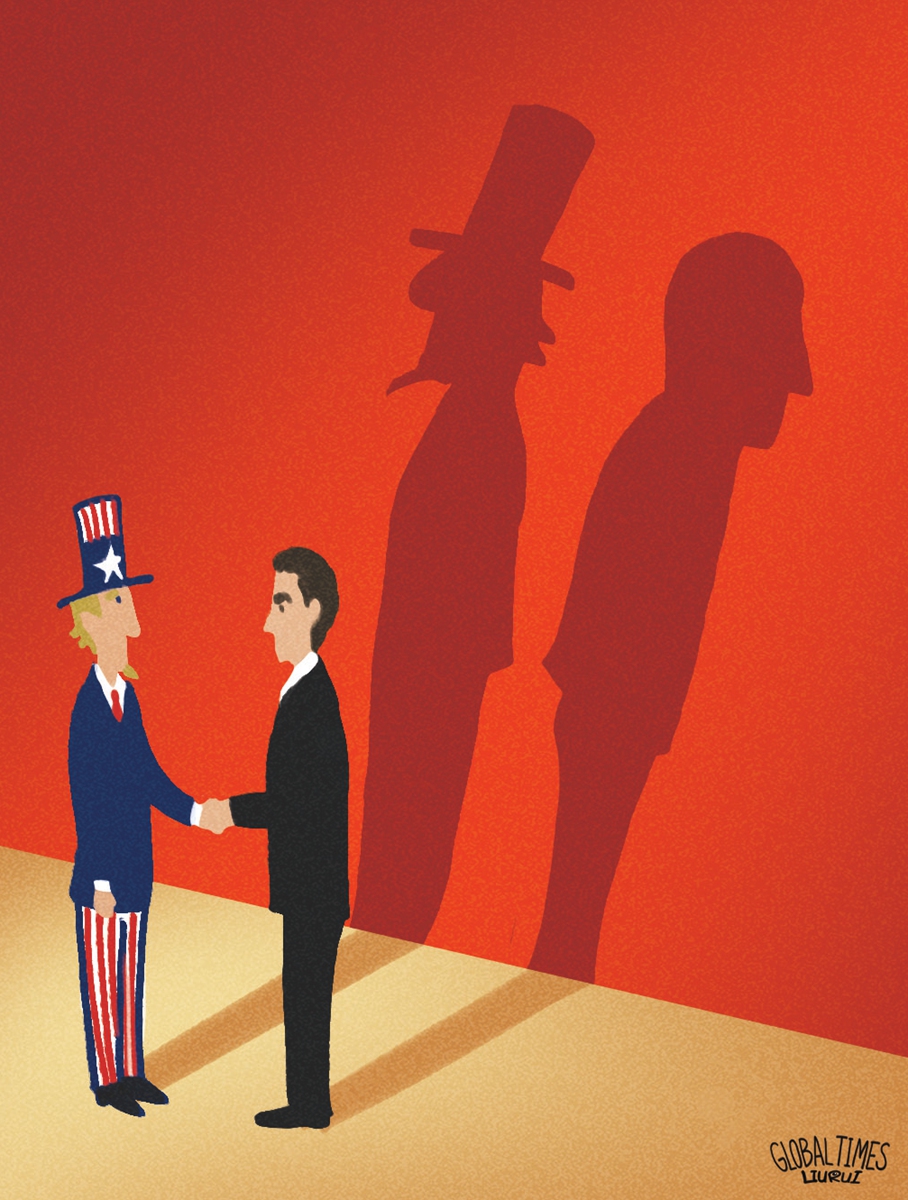India aims at maximum interests with BECA
By Zhang Jiadong Source: Global Times Published: 2020/10/25 19:53:40

Illustration: Liu Rui/GT
The third annual US-India 2+2 Ministerial Dialogue will be held in New Delhi on Tuesday. It's reported the two countries are likely to sign the Basic Exchange and Cooperation Agreement (BECA) at the meeting. This dialogue means that US-Indian relations are advancing steadily. Generally speaking, four background factors are worthy of attention regarding this dialogue.
First, this is an offline meeting held during the pandemic. As the pandemic is raging, most diplomatic activities worldwide are conducted in the form of online meetings. However, even under this perilous circumstance, US Secretary of State Mike Pompeo will attend the 2+2 dialogue in New Delhi. He is also going to visit Sri Lanka, Maldives and Indonesia, showing that the US attaches great importance to US-Indian relations and Indo-Pacific Strategy.
Second, this dialogue takes place during the home stretch of the US presidential election. The last round of debates has finished, and it is only over one week before the deadline for voting on November 3. Under this situation, this major diplomatic activity between the US and India highlights the importance of US-Indian relations to the US.
Third, this dialogue takes place when China and India are undergoing border tensions. The skirmishes and confrontations at the Sino-Indian border have lasted for nearly half a year. The US-India 2+2 dialogue, regardless of the presidential election and the pandemic, has a clear target, that is, China. In response to it, China will make new judgments on the US and India's strategic intentions. It will need to further find appropriate means to implement policies going forward with New Delhi.
Fourth, the US, Japan, India and Australia are going to hold a joint Malabar naval exercise in November. An Indo-Pacific maritime security structure is gradually taking shape with this.
In general, the US-Indian military cooperation will continue to develop. However, in view of the timing of this dialogue, it can be seen that the US seeks to gain some short-term direct benefits from India to help Trump win the reelection. Washington has been hoping that New Delhi will procure more arms from the US. With the intense border conflicts between China and India, the US has noticed some opportunities to turn a buck.
As for the BECA agreement, whether it will be finally signed remains to be seen. While the outcome of the US presidential election is still uncertain, whether or not India is willing to take political risks will depend on its prediction of the election. Reaching an agreement on the signing of the deal but not signing BECA itself may be the best choice for India. It is safer to wait until the winner comes out of the November 3 results.
In the long run, in a multipolar world, US-Indian relations will continue to develop, but will also transform. It's difficult for Washington to form alliance with New Delhi like it has with Tokyo. On the one hand, India sees itself as a major world power, which determines its attitudes toward the US. As a country which believes it is destined to become even more "powerful," India will not be subject to any other global competitor. During the Cold War, India's strategic environment was once very dangerous. But it still remained neutral between the US and the Soviet Union, or at most a little in favor of the latter.
On the other hand, unlike the US and the Soviet Union, China and the US have not formed a bipolar system. Whichever side India tilts, it can hardly produce a decisive strategic impact. In this case, India has the ability to make diplomatic options freely, but not necessarily the strategic choices. It is in India's best interests to maintain relations of friendship and cooperation, though unbalanced, with all major powers. Otherwise, India may be involved in a major power game. This will make it lose its strategic autonomy.
From a practical perspective, India's national strength is enhancing and its international status improving - just as the US is relatively declining. Under such circumstances, a rising India will certainly take advantage of the increasing strategic needs of the US for India. But it will not rely entirely on this decelerating ship.
The author is director of South Asian Studies Center at Fudan University and Professor of American Studies Center. opinion@globaltimes.com.cn
Posted in: ASIAN REVIEW,CHINA-INDIA